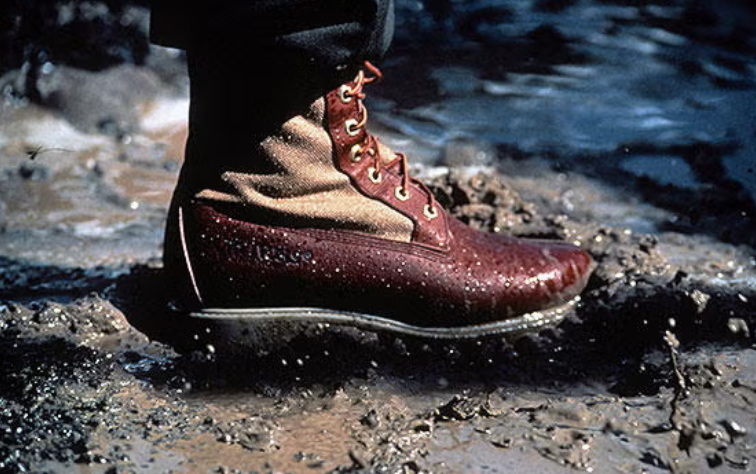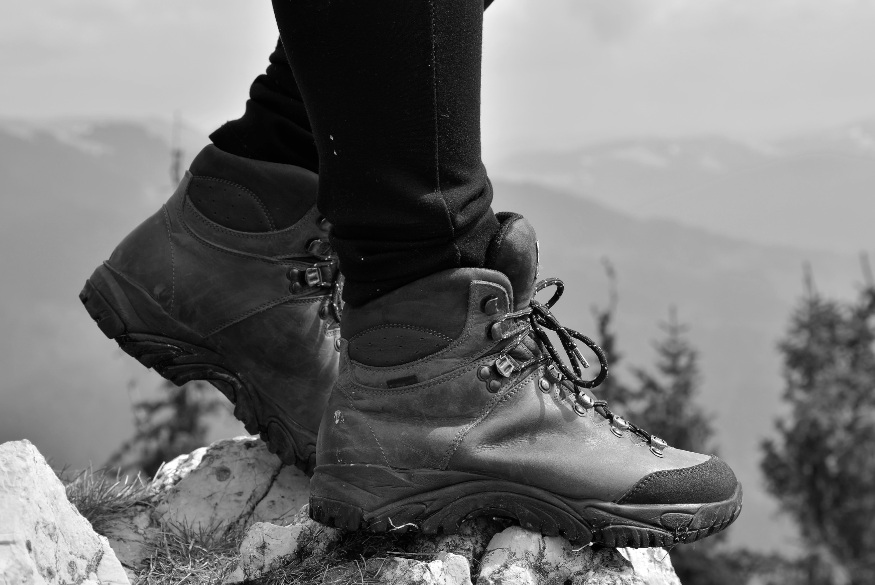Content Menu
● Understanding the Differences Between Men's and Women's Hiking Shoes
>> Design and Fit
>> Weight and Cushioning
>> Style and Aesthetics
● Benefits of Wearing Men's Hiking Shoes
>> 1. Wider Fit
>> 2. Durability
>> 3. Enhanced Traction
>> 4. Availability of Sizes
● How to Choose the Right Men's Hiking Shoes
>> 1. Measure Your Feet
>> 2. Try Them On
>> 3. Consider Socks
>> 4. Test on Different Surfaces
>> 5. Read Reviews
● Common Misconceptions About Women's Footwear Choices
>> Myth 1: Women Should Only Wear Women's Shoes
>> Myth 2: Men's Shoes Are Heavier
>> Myth 3: Men's Shoes Lack Style
● The Evolution of Hiking Footwear
● Maintenance Tips for Hiking Shoes
>> Cleaning Your Shoes
>> Waterproofing
>> Drying Properly
>> Regular Inspections
● Conclusion
● FAQ
>> 1. Can women wear men's hiking boots?
>> 2. Are there specific brands known for unisex hiking footwear?
>> 3. How do I know if I need a wide fit in hiking shoes?
>> 4. What should I look for in terms of arch support?
>> 5. Is it advisable to break in new hiking shoes before a long hike?
● Citations:
Hiking is a fantastic way to connect with nature, stay active, and enjoy the great outdoors. When it comes to choosing the right footwear for hiking, many women may wonder if they can wear men's hiking shoes. This article will explore the differences between men's and women's hiking shoes, the benefits of wearing men's shoes, tips for selecting the right fit, and maintenance advice for hiking footwear. Additionally, we will include images and videos to enhance your understanding of this topic.

Understanding the Differences Between Men's and Women's Hiking Shoes
Design and Fit
Men's and women's hiking shoes are designed with different anatomical considerations in mind.
- Width: Men's shoes are generally wider than women's shoes. Women typically have narrower feet, so a shoe designed for men might feel loose or uncomfortable.
- Arch Support: Women's shoes often have more arch support to accommodate the generally higher arches found in women's feet.
- Heel Height: The heel height may differ between genders, with women's shoes often having a slightly lower heel.
Weight and Cushioning
Men's hiking shoes may be built with heavier materials to accommodate larger body weights. However, this can vary by brand and model. Additionally, cushioning in men's shoes may be designed for different weight distributions.
Style and Aesthetics
While functionality is paramount, style also plays a role in shoe selection. Men's hiking shoes often feature more rugged designs and colors that some women may not prefer. However, many brands are now creating unisex styles that appeal to all hikers.
Benefits of Wearing Men's Hiking Shoes
1. Wider Fit
For women with wider feet or those who prefer a roomier fit, men's hiking shoes can provide additional comfort. This can be particularly beneficial during long hikes where foot swelling is common.
2. Durability
Men's hiking shoes are often constructed with more robust materials designed to withstand rough terrain. This can lead to increased durability over time, making them a worthwhile investment for serious hikers.
3. Enhanced Traction
Many men's hiking shoes come equipped with aggressive tread patterns that provide superior grip on various surfaces. This feature is crucial for navigating slippery or uneven terrain safely.
4. Availability of Sizes
In some cases, women may find a better selection of sizes in men's models, especially in specialty outdoor stores or online retailers.
How to Choose the Right Men's Hiking Shoes
When considering whether to wear men's hiking shoes, it's essential to focus on fit and comfort rather than gender labels. Here are some tips for selecting the right pair:
1. Measure Your Feet
Before purchasing any hiking shoes, measure your feet accurately. Consider both length and width to ensure you find a comfortable fit.
2. Try Them On
Always try on shoes before buying them. Walk around the store or your home to assess comfort levels. Pay attention to areas that might pinch or rub.
3. Consider Socks
The type of socks you plan to wear can impact fit significantly. Opt for moisture-wicking socks that provide cushioning without adding bulk.
4. Test on Different Surfaces
If possible, test the shoes on various surfaces to evaluate grip and comfort levels in real-world conditions.
5. Read Reviews
Look for reviews from other female hikers who have worn men's shoes. Their experiences can provide valuable insights into sizing and performance.

Common Misconceptions About Women's Footwear Choices
Myth 1: Women Should Only Wear Women's Shoes
While many brands market their products specifically towards women, it doesn't mean that men's options are off-limits. The most important factor is finding a shoe that fits well and meets your needs.
Myth 2: Men's Shoes Are Heavier
While some men's hiking shoes may be heavier due to their construction, there are plenty of lightweight options available that offer excellent support and traction.
Myth 3: Men's Shoes Lack Style
The perception that men's hiking shoes lack style is outdated. Many brands now offer aesthetically pleasing designs that appeal to all genders.
The Evolution of Hiking Footwear
Understanding the history of hiking footwear can also help inform your choices today.
Hiking boots have evolved significantly over thousands of years—from ancient woven sandals used by early humans to modern technical footwear equipped with advanced materials like GORE-TEX and Vibram soles.
- Early Footwear: The earliest known footwear dates back over 12,000 years, consisting of woven sandals made from natural fibers. These primitive designs laid the groundwork for future innovations in foot protection during outdoor activities.
- Military Influence: After World War I, military boots began influencing civilian hiking footwear design as soldiers returned home seeking leisure activities in nature. Cobblers started tailoring boots specifically for hikers based on military specifications.
- Technological Advancements: The introduction of synthetic materials in the mid-20th century revolutionized hiking footwear by providing lighter options with better traction and durability compared to traditional leather boots.
This evolution highlights how far we've come in terms of technology and design when it comes to outdoor footwear—making it easier than ever for both men and women to find suitable options for their adventures.
Maintenance Tips for Hiking Shoes
Taking care of your hiking shoes is essential for prolonging their lifespan and ensuring comfort on the trails:
Cleaning Your Shoes
- Remove Dirt: After each hike, remove dirt and debris using a soft brush or cloth.
- Use Appropriate Cleaners: For synthetic boots, consider using specialized cleaning gels like Nikwax Footwear Cleaning Gel; for leather boots, use damp cloths followed by conditioning products like Meindl Sportwax.
Waterproofing
Regularly apply waterproofing sprays or treatments appropriate for your shoe material (synthetic or leather) after cleaning them to maintain their water resistance.
Drying Properly
After cleaning or if they get wet during hikes, dry your boots at room temperature away from direct sunlight or heat sources—this prevents damage to materials.
Regular Inspections
Check your boots regularly for signs of wear such as loose stitching or sole damage; addressing these issues early can prevent further deterioration.
By following these maintenance steps and using the right products for your boot material, you'll ensure your hiking boots are ready for your next adventure.
Conclusion
In conclusion, women can certainly wear men's hiking shoes if they find a suitable fit that meets their needs for comfort and performance. The key is to focus on individual foot shape, size, and personal preferences rather than being constrained by gender-specific labels. With an increasing number of brands offering unisex designs and diverse options, every hiker can find footwear that supports their adventures in nature.

FAQ
1. Can women wear men's hiking boots?
Yes, women can wear men's hiking boots as long as they find a comfortable fit that suits their foot shape.
2. Are there specific brands known for unisex hiking footwear?
Many outdoor brands like Merrell, Salomon, and Columbia offer unisex options that cater to both men and women.
3. How do I know if I need a wide fit in hiking shoes?
If you experience discomfort or pinching when wearing standard-width shoes, you may benefit from trying wide-fit options.
4. What should I look for in terms of arch support?
Look for shoes that provide adequate arch support based on your foot type; those with high arches may need more cushioning than those with flat feet.
5. Is it advisable to break in new hiking shoes before a long hike?
Yes, it's highly recommended to break in new hiking shoes gradually before embarking on longer hikes to avoid blisters and discomfort.
Citations:
[1] https://www.gore-tex.com/blog/step-into-history-of-hiking-shoe
[2] https://www.cleverhiker.com/footwear/best-hiking-shoes-women/
[3] https://www.travelandleisure.com/style/shoes/best-hiking-shoes-for-women
[4] https://www.greatoutdoors.ie/blogs/expert-advice/how-to-clean-maintain-hiking-boots
[5] https://www.appalachianoutfitters.com/blogs/news/the-evolution-of-hiking-boots-from-past-to-present
[6] https://gearjunkie.com/footwear/best-hiking-shoes-for-women
[7] https://splodzblogz.co.uk/2020/09/28/gender-in-hiking-shoes/
[8] https://world.scarpa.com/post/best-way-to-maintain-trekking-shoes.html
[9] https://www.backroads.com/pro-tips/hiking/who-invented-hiking-boots
[10] https://hikemuch.com/are-merrell-shoes-good/

















